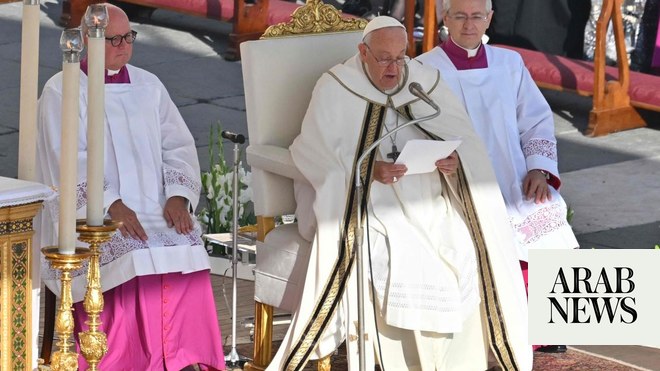
Former American ambassador Chas Freeman has noted that Turkey lies at the center of a “vast web of geopolitical relationships.” In the Middle East alone, it is now at the heart of several regional conflicts that have severely tested the acumen of its leader, President Recep Tayyip Erdogan. In the ongoing national election campaign, these issues are causing intense domestic debates.
Turkey is playing two roles in Syria. Firstly, it is a partner in the tripartite Astana peace process that also includes Russia and Iran and vies for credibility with the Western-backed Geneva process. Secondly, Ankara has intervened militarily in northern Syria to break the contiguity of the Syrian Kurdish “homeland” along the Syria-Turkey border.
Turkish forces have occupied the Kurdish town of Afrin and have insisted that the Kurds evacuate Manbij, about 100 kilometers away. Since Manbij also hosts US and French forces, this demand has opened up the prospect of a direct Turkish military confrontation with its NATO allies. This scenario reflects increasing Turkish disenchantment with US policies in Syria, where the latter has been arming and training Kurdish militias.
Adding to Turkish concerns, in January this year former US Secretary of State Rex Tillerson had announced a plan to stay in these Kurdish territories on a long-term basis by training a Kurdish force and also deploying US forces in several bases. In response, Turkey has strengthened its ties with Russia, working with Moscow and Iran in the Astana process and also signing an agreement to buy the Russian S-400 missile system.
But the Turkish position seems ambivalent. In mid-April, Erdogan supported the US-led air strikes on Syrian targets in response to the apparent chemical weapons attack in Eastern Ghouta. New Secretary of State Mike Pompeo later said that the US planned “to enlist Turkey as a more active ally in supporting the Geneva process,” signalling a major effort to pull Ankara back into the Western alliance, possibly in exchange for vacating Manbij.
US-Turkey relations have become more complicated since Washington’s withdrawal from the nuclear agreement with Iran and the threat of more stringent sanctions on countries dealing with Tehran.
Talmiz Ahmad
But, in a meeting of the foreign ministers of the tripartite alliance last month, Turkey’s Mevlut Cavusoglu said that the US had broken earlier promises, suggesting that Turkey was not yet convinced about the US’s intentions.
US-Turkey relations have become more complicated since Washington’s withdrawal from the nuclear agreement with Iran and the threat of more stringent sanctions on countries dealing with Tehran. Erdogan has called the US initiative “wrong” and conveyed to Iran his commitment to improve bilateral economic ties.
Turkey is a major importer of Iranian oil and gas and it also uses Iran as a land bridge for its trucks carrying goods to Central Asia. The two countries also share concerns relating to rising Kurdish aspirations for sovereignty. But it is not clear whether Turkey would be able to mobilize the muscle to face US sanctions if it persists with its ties with Iran.
Some Turkish observers have suggested that Ankara could consider numerous creative ways of circumventing US sanctions, such as a commodity exchange system operating through free zones at border crossings and through gold exports to facilitate financial transfers outside the US-controlled international banking system. This will not be easy.
A Turkish bank executive was last week sentenced to 32 months in jail in the Zarrab-Halkbank trial in New York, which was related to a purported Turkish-Iranian scheme to bust US sanctions before 2016 through fake food exports and gold transfers. Erdogan had previously said that sentencing Mehmet Hakan Atilla would “completely destroy Turkish-US relations” as it would be tantamount to declaring “the Turkish Republic a criminal.”
Meanwhile, the trial in Turkey of American pastor Andrew Brunson, who is accused of participating in the coup against Erdogan in July 2016, has had the same emotional effect in the US, where Congress has decided to halt weapons sales to Turkey for planning to buy Russian arms and detaining the pastor, which its members see as “hostage-taking.”
Recently, Turkey’s relations with both the US and Israel have been hit hard by the moving of the US Embassy to Jerusalem and the violence inflicted by Israeli forces on the Palestinians in Gaza. The latter has led to an exchange of abusive rhetoric between the Turkish and Israeli leaders: Erdogan has called the Gaza killings a “genocide” and Israel a “terror state” and an “apartheid state.”
It is not known whether Erdogan’s hard-line posturing will continue after the elections next month. Russian commentator Andrew Korybko has described Erdogan as a “consummate geopolitical opportunist,” who seeks to place Turkey on the “middle ground” so that major powers compete for its support.
Given the increasingly tough US posturing on Iran and the fierce opposition of the hawks around President Donald Trump to Russian influence in the Middle East, it seems battle lines are being drawn in the region, with the US and Israel ranged against Iran and its allies, Syria and Hezbollah, and possibly Russia too. Erdogan will soon need to move out of his country’s geopolitical web and choose his side.
Talmiz Ahmad is a former Indian diplomat and holds the Ram Sathe Chair for International Studies, Symbiosis International University, Pune, India.











